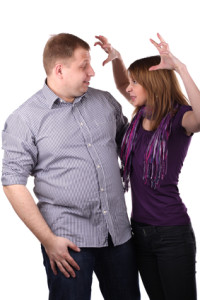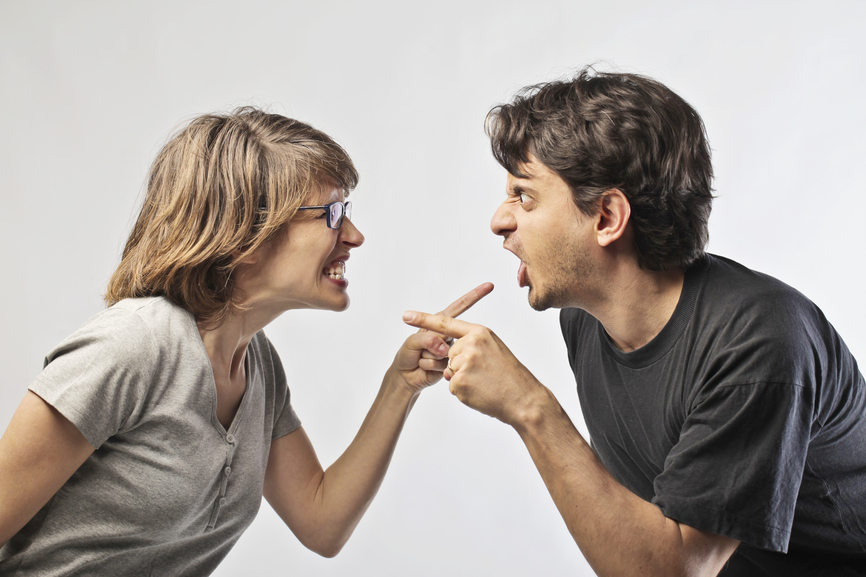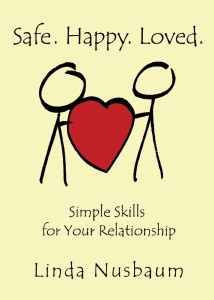People come to me saying, “My husband blames me for everything,” or “My wife blames me for everything.” Here’s a look at why people look to blame another when they feel hurt.
Many of us automatically look for someone to blame when we get mad. This is very common; humans often look for someone to take responsibility when something bad happens. So what’s wrong with blaming another person when we get upset? If a lot of people do this why even talk about it?
Think about this, have you ever been blamed for something that had nothing to do with you? Remember maybe thinking, “This is not right, I didn’t do anything.” Your gut told you this is not right. You knew it instantly. No one likes to get blamed for anything, and when we do very few of us will naturally respond with something like, “Of course I accept the blame. It was my fault; I am sorry. What can I do to make it up to you?”
People Blame to Defend Themselves

Often we just defend ourselves with, “Why are you blaming me for everything? I didn’t do anything.” Unfortunately, blaming another is how many people try to solve their difficulties in life. Get hurt, find the culprit, and let them know you were wronged. Unfortunately, this system is not very effective.
Blaming another for what isn’t going right is really like saying, “When I get my feelings hurt I must find the person who hurt me and then tell them how they hurt me and how deeply I was wounded.”
That’s a whole lot of blame. Many of us grew up this way. I did. Getting mad at people and holding them responsible for hurting me was how I saw the world. I would get really angry because unconsciously I used to feel that who ever hurt me should have known better. If they really cared they wouldn’t have done what they did. The most important word in the last sentence is, “unconscious” because when we are not really thinking we are just reacting with an old pattern.
The Blame Game Is Learned Young
Blaming another is a reaction, a habit. Not a thoughtful act. If we could get out of our reflex and think about what happened we might have a different view of what ever the person did to us. Let me give you an example.
When I was a little girl I would open the refrigerator hoping to find what I was looking for and if it was gone, already eaten, I would yell, “Who ate my (could be anything)?” I would not stop until I could found the culprit, a brother, sister, mother, and after I found them I would ask them in a distressed voice, “Why?”
As you could imagine there was a lot of chaos in my home and blaming someone for something was pretty common. We were a blaming household. If someone did something, someone called them out and then there was a lot of yelling.
Humor: A Healthy & Disarming Response to Blame

Fast forward to my adult self. I am living with my husband to be and I go to the refrigerator and the peas are gone (technically the leftovers belong to everyone), but I am still that little girl who grew up blaming. So I say accusingly, “Did you eat my peas?”
I am not saying this calmly, I am distressed, and upset.
Now, he did not grow up in the same household and this accusation is new to him. He is also not provoked or trying to defend himself. Instead he says as straight as he can, “Yes, I ate your peas and I did it to hurt you.” This was so absurd because this man is kind and generous and would not intentionally hurt anyone. I hear his comments and I start to laugh.
I realize in that moment how absurd it was for me to blame him. Of course he didn’t do this on purpose. No one did anything to me. I see this unconscious behavior in myself. I work on it. I understand I am hard-wired to look outside myself for someone or something to blame. And I know true peace and harmonious relationships can only exist when each of us takes responsibility for our self.
It’s not easy unwinding our behaviors and patterns. And yet it is the only way out of them. Because every-time I refrain from blame, I can usually figure out what to do next. And it might just be that simple.
Blame Less; Love More
Read a Book Teaching What to Do When “She/He Blames Me for Everything!”
My new book, Safe. Happy. Loved. Simple Skills for Your Relationship just might help you and your loved one break patterns like blaming. Learn how to fight less, communicate more effectively, and revel in your happiest relationship yet.
Get Couples Counseling
Come in for couples counseling. Couples counseling can help you and your loved one get the most out of your relationship. It'll equip you with coping strategies and tools for communication that can help you argue less and love more.



Thank you for this! I feel like my husband and I both blame each other, though I am more vocal about it, and I think this article truly helped me to mature and become responsible for my own emotions a little more! I am sure this will take practice, but I feel more hopeful now. God bless you for that!